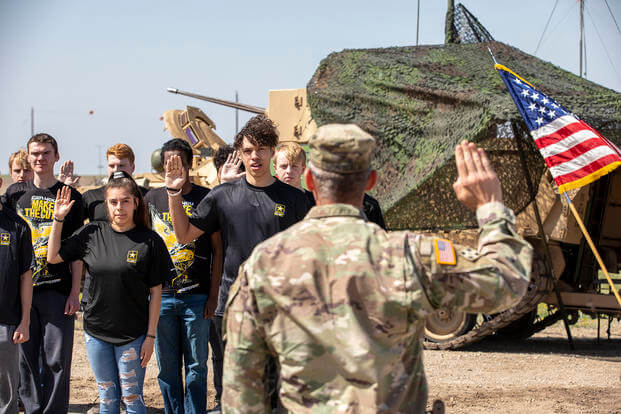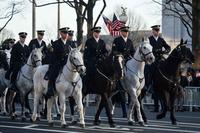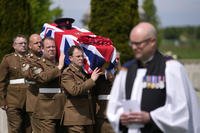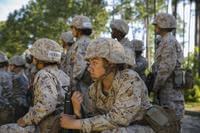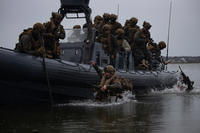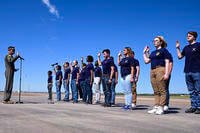The Army does not expect to hit its ambitious recruiting goal of 65,000 new soldiers this year as the pool of young Americans eligible to serve continues to shrink.
"We are not going to make that goal," Army Secretary Christine Wormuth told lawmakers at a congressional hearing Tuesday. "We are doing everything we can to get as close to it as possible; we are going to fall short."
The Army fell some 15,000 active-duty recruits short last year of its goal of 60,000 new troops. The Army National Guard is in a seemingly deeper hole, facing an uphill battle bringing new soldiers in while simultaneously seeing retention issues with part-time soldiers heading for the exits as units struggle to juggle domestic and overseas missions.
Read Next: 'Ambushed': Former Marine Is Latest Veteran Killed in Ukraine War
Most other military branches are also at risk of missing their recruiting goal, with the exception of the Space Force, the smallest service and one that has largely relied on transfers from the Air Force to build its ranks.
Army leaders say the issues with recruitment are an amalgamation of barriers getting applicants into the ranks, topped by the high percentage of Americans in prime recruiting age simply being unqualified for service. Army planners estimate only about 23% of 17- to 24-year-olds can meet the service's expectations, with many applicants failing the military's SAT-style entrance exam or being too overweight to serve.
In August, to combat the worsening recruiting trends, the Army started the Future Soldier Preparatory Course. There, applicants who came up just shy on body fat or academic standards attend a pre-basic training course for whichever of those two standards they didn't satisfy for enlistment. Army leaders have touted the program as graduating roughly 3,300 out of 4,000 applicants who went onto basic training and who otherwise would not have been allowed to serve. Right now, the course is set to be able to train roughly 12,000 applicants per year. The Navy also started its own pre-basic courses in March.
But that program can help with only one part of the worsening recruiting picture.
Recruiters are reporting an issue with increased scrutiny on applicants' medical and mental health history, with issues such as years-old minor injuries or common prescriptions causing major headaches. Last year, the Pentagon launched Military Health System Genesis, a new electronic health record system, which gave the military unprecedented access to an applicant's medical and mental health background during the recruiting process -- especially for recruits from military families who received prior military medical care.
Previously, minor health issues were largely overlooked during the enlistment process, often by the recruiter, as any snags could delay the recruiting process by months or make an applicant ineligible altogether.
Army leaders, including Wormuth and Gen. James McConville, the service's top officer, have routinely said they will not lower the standards required for enlisting or commissioning. Meanwhile, the Navy has been more welcoming to applicants with low entrance exam test scores, and the Air Force and Space Force have been more forgiving with applicants who test positive for cannabis use during the enlistment process, as every service faces recruiting headwinds.
According to the Centers for Disease Control and Prevention, 22% of 12- to 19-year-old Americans are obese, and that percentage only climbs with age. SAT and ACT scores have also fallen in recent years, some of that being attributed to the COVID-19 pandemic's disruption of schools and poor access to quality education resources for children from low-income households.
As test scores have plummeted and the obesity crisis has grown only more severe in the last decade, the Army has required soldiers to be more technically savvy. Noncommissioned officers are also increasingly expected to have a college degree and writing skills. And the Army Combat Fitness Test, or ACFT, is widely seen as the most comprehensive and difficult fitness test in the service's history, demanding troops diversify workout routines.
-- Steve Beynon can be reached at Steve.Beynon@military.com. Follow him on Twitter @StevenBeynon
Related: A New Medal and Revised Marketing Tactics Part of Army's Fight Against Recruiting Slump

